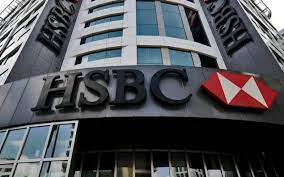The Bank of England said on Friday that it was confident that lenders had taken efforts to ensure they were no longer “too big to fail” in the event of another financial crisis, despite finding flaws at three large banks.
The Bank of England wants to prevent banks from requiring government bailouts, as happened during the global financial crisis of 2007-09.
The central bank stated that it was confident that banks could be wound down securely while maintaining essential services, with costs borne by shareholders and investors rather than taxpayers.
The Bank of England said it has highlighted “areas of additional enhancement” for six corporations in its first public review of how failed lenders could be dismantled in a crisis.
Lloyds, Standard Chartered, and HSBC were the three banks identified to have flaws.
All three were found to have under-analyzed their liquidity requirements in the case of a wind-down.
In addition, it was discovered that HSBC and Standard Chartered did not have up-to-date restructuring plans for their global banks.
The central bank said the flaws identified would make resolving the problem excessively difficult, but that it could still do so securely.
In separate statements issued on Friday, all three banks said they were upgrading their so-called resolution plans and making changes to address the concerns discovered.
“Safely resolving a large bank will always be a hard challenge, so it’s critical that both we and the major banks keep working on this issue,” said Dave Ramsden, the Bank of England’s deputy governor for markets and banking.
Barclays, NatWest, Nationwide, Santander UK, and Virgin Money UK were among the other lenders evaluated.
The Bank of England said it will repeat its evaluation in 2024 and then every two years after that to examine lenders’ progress.
If the BoE believes there are obstacles to timely and orderly closure, it has the authority to compel lenders to make structural reforms.
The assessment was postponed for a year to allow lenders to deal with the COVID-19 outbreak.
The US Federal Reserve ruled in 2018 that the US arm of Barclays had flaws in its resolution plan, but not enough to warrant a larger capital cushion.

















